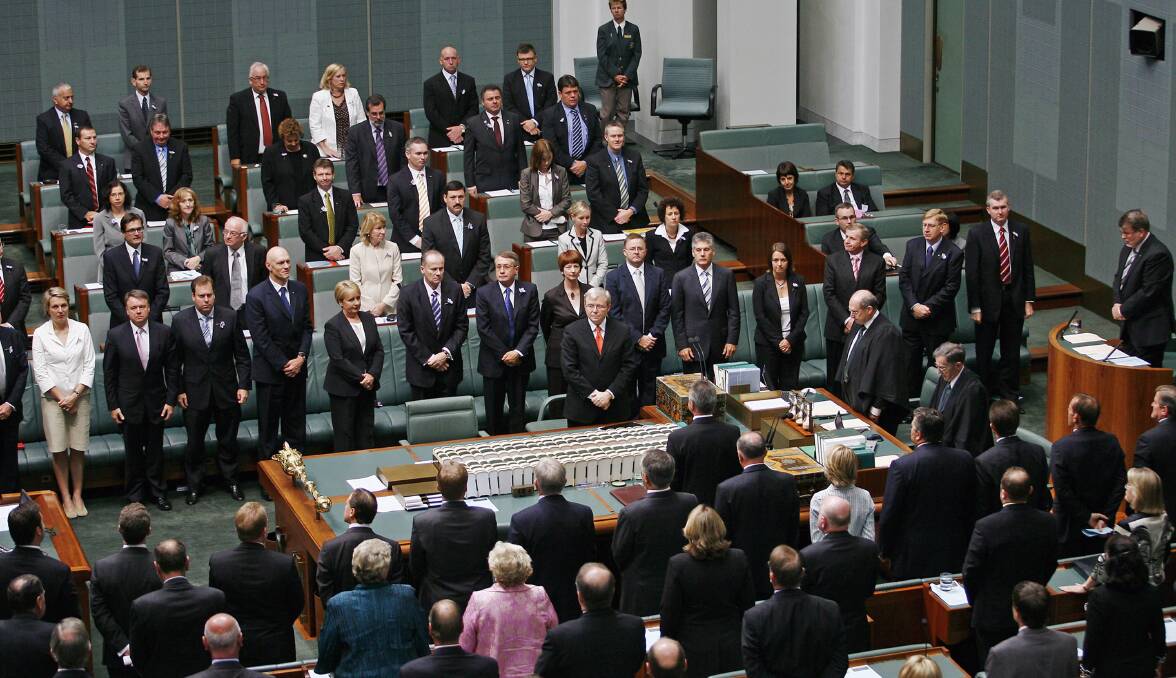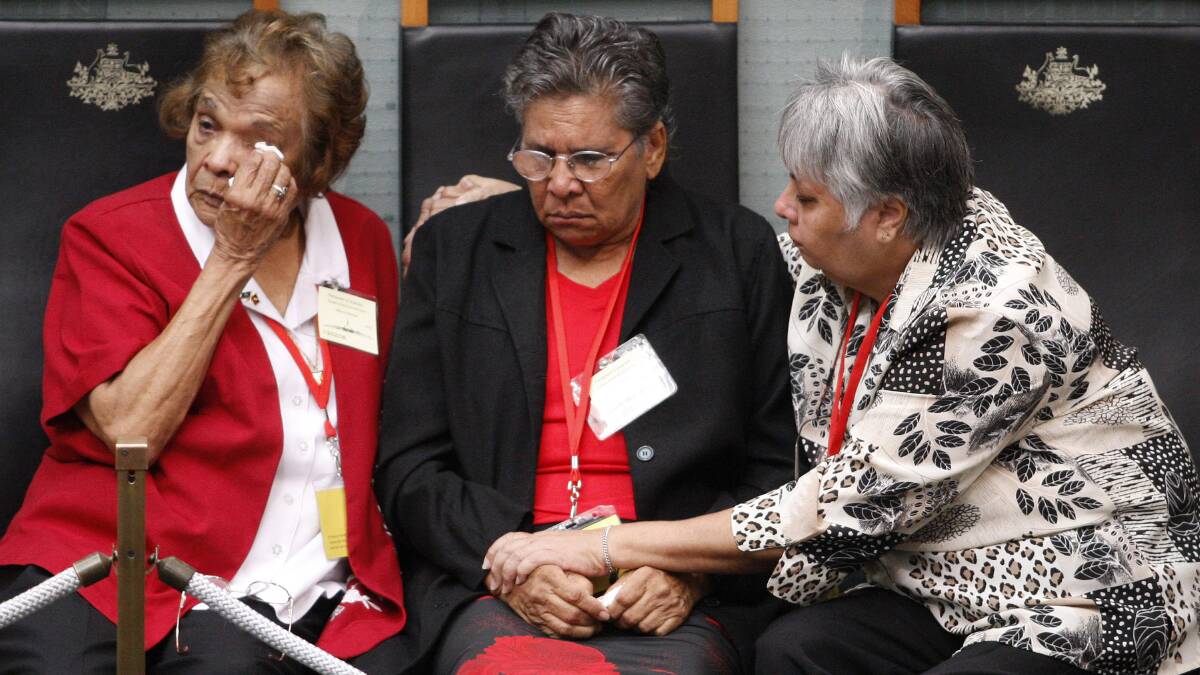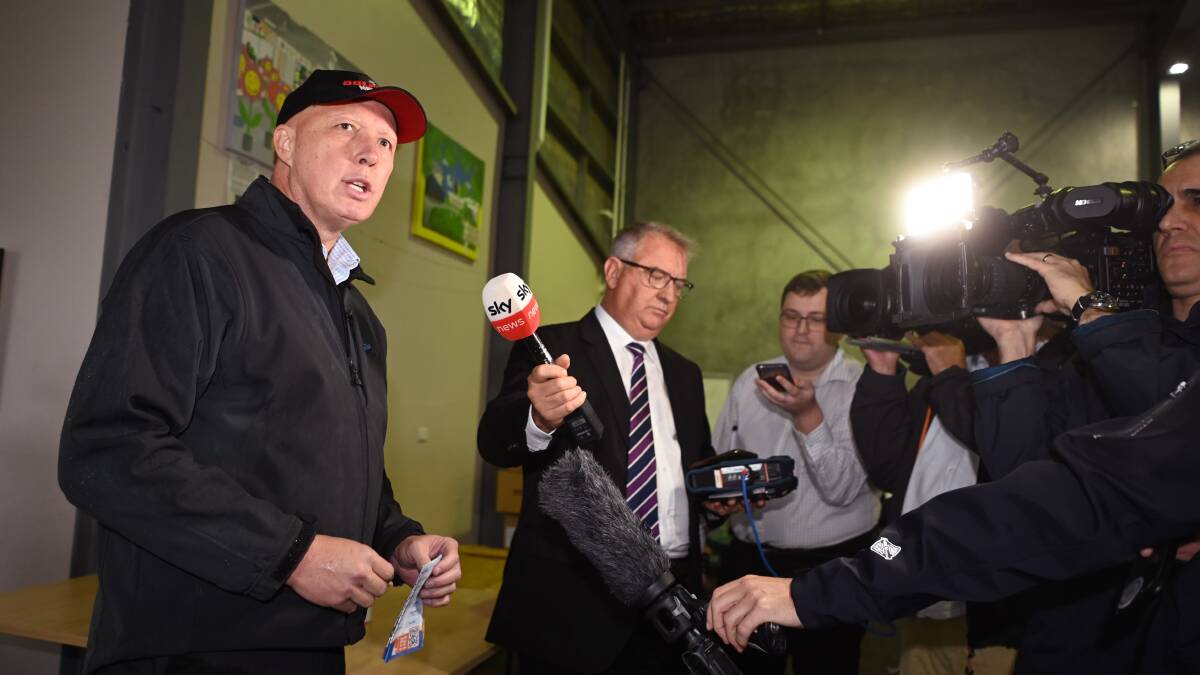Australians should be deeply concerned that Peter Dutton - the man who proudly marched out on the Apology to Indigenous Australians - stands unopposed within the Liberal Party as its alternative prime minister.
Subscribe now for unlimited access.
or signup to continue reading
While his emergence as Opposition Leader has renewed scrutiny of his motivations back in 2008, this was just one of many troubling chapters in Dutton's three-decade career that expose his serial failure to empathise with anyone he perceives as different.
You see it throughout Dutton's attitudes to poverty, to disability, to Pacific Islanders threatened by climate change, to LGBT rights and much more. At best, Dutton is indifferent to other perspectives; at worst, he openly weaponises these differences for crude political gain, as he's done with the toxic politics of race.
Dutton took his boycott of the Apology very seriously. He was so opposed to the government apologising for past injustices that he offered to resign from the Coalition frontbench. It was a matter of deep principle.

Dutton now says he regrets his decision. I don't believe him. More likely he regrets how the Apology brought our country together, rather than inspiring widespread dissent among white Australians as many predicted. Far from becoming a hero, Dutton's boycott made him look petty. What he truly regrets is his damaged reputation, as he now opportunistically pivots from the far right (where he built his career in the Liberal Party) towards the political centre through a cosmetic makeover.
His insincerity is evidenced by his ever-changing explanations for the boycott. Before the Apology, Dutton warned it could expose taxpayers to billions in compensation. After it, he claimed it was a tokenistic gesture. Now he claims he supported apologising, but not until "the problems were resolved".
This attempted reconstruction is intellectually and morally bankrupt. The Apology was recommended by the 1997 Bringing Them Home report, which John Howard had already ignored for more than a decade. Wait much longer and the Stolen Generations would have been long dead before their suffering was acknowledged.
Furthermore, an apology is a starting point for reconciliation, not an end. That's why we introduced "Closing the Gap". You wouldn't advise a newlywed couple to "never apologise until all your problems are resolved". Why embrace that policy in government?

Dutton's walkout was ideological. He couldn't imagine the Apology's meaning from anyone's perspective but his own, just as he couldn't relate to the asylum-seeker families he kept in limbo for years, or the Pacific Islanders whom he laughed at as their homes were inundated by rising seas.
On the other hand, Dutton eagerly pledged "special attention" for white South African asylum seekers, who he instinctively believed would "abide by our laws, integrate into our society, work hard and not lead a life on welfare" if they were brought to a "civilised country" like ours.
Dutton's lack of empathy has ramifications beyond racial politics. As a new MP, he accused families affected by intergenerational poverty of choosing their fate. As health minister, Dutton fought to abolish bulk billing under Medicare (since no truly sick person would skip the doctor to avoid spending money). As defence minister, when he should have been stopping multibillion-dollar cost overruns and capability gaps, he banned his officials from wearing rainbow pins in solidarity with LGBT comrades, in an appeal to the far right and the Murdoch media.
As employment minister, Dutton became obsessed with cutting disability support pensions, believing large numbers were faking their disabilities. This instinct reared its head again recently, when Dutton attacked his Labor opponent in the seat of Dickson, Ali France, for living in a house specially designed for her wheelchair because it was in a neighbouring electorate.

READ MORE:
- Finn McHugh: From Apology boycott to preparing for war, Peter Dutton's past frames Liberal leadership tilt
- Mark Kenny: Hard man Peter Dutton comes out swinging as conservatives reconfigure
- Paul Kildea, Eddie Synot: We keep hearing about a First Nations Voice to Parliament. How do we get there?
- Linda Burney: Australia is ready to take the next step on the path to reconciliation
Dutton's contempt for scrutiny, manifested in his resistance to independent anti-corruption commissions, also has deep roots. In 1989, when Queenslanders overwhelmingly backed Wayne Goss to clean up Joh Bjelke-Petersen's corrupt police state, Dutton personally stood for election against Goss's deputy, Tom Burns. As Goss's chief of staff, I remember thinking: "What side of history does he want to be on?"
However, fate has granted Dutton one big opportunity to change course: the Uluru Statement from the Heart. While politicians are wary of backing constitutional referendums given their high rate of defeat, even more dangerous is opposing a referendum that wins massive public support.
I am confident most Australians will embrace our First Australians' gracious request to be formally consulted on laws affecting them, through a constitutionally entrenched Voice - just as Australians voted for Indigenous rights in 1967 with 90.8 per cent voting Yes. Like the Apology, the Uluru Statement can bring Australians together in common cause and optimism.
If Dutton again seeks to divide Australians against each other on race, he will once more find himself on the wrong side of history. For what remains of a political career built on division, that would be terminal.
- Kevin Rudd delivered the Apology to the Stolen Generations as prime minister of Australia in 2008.

